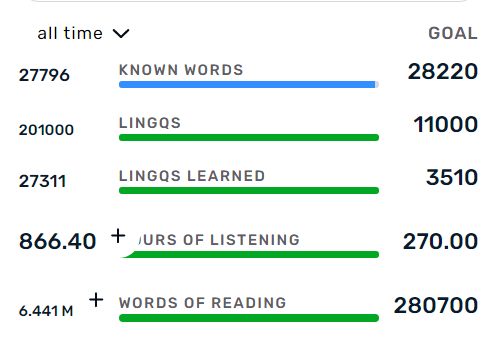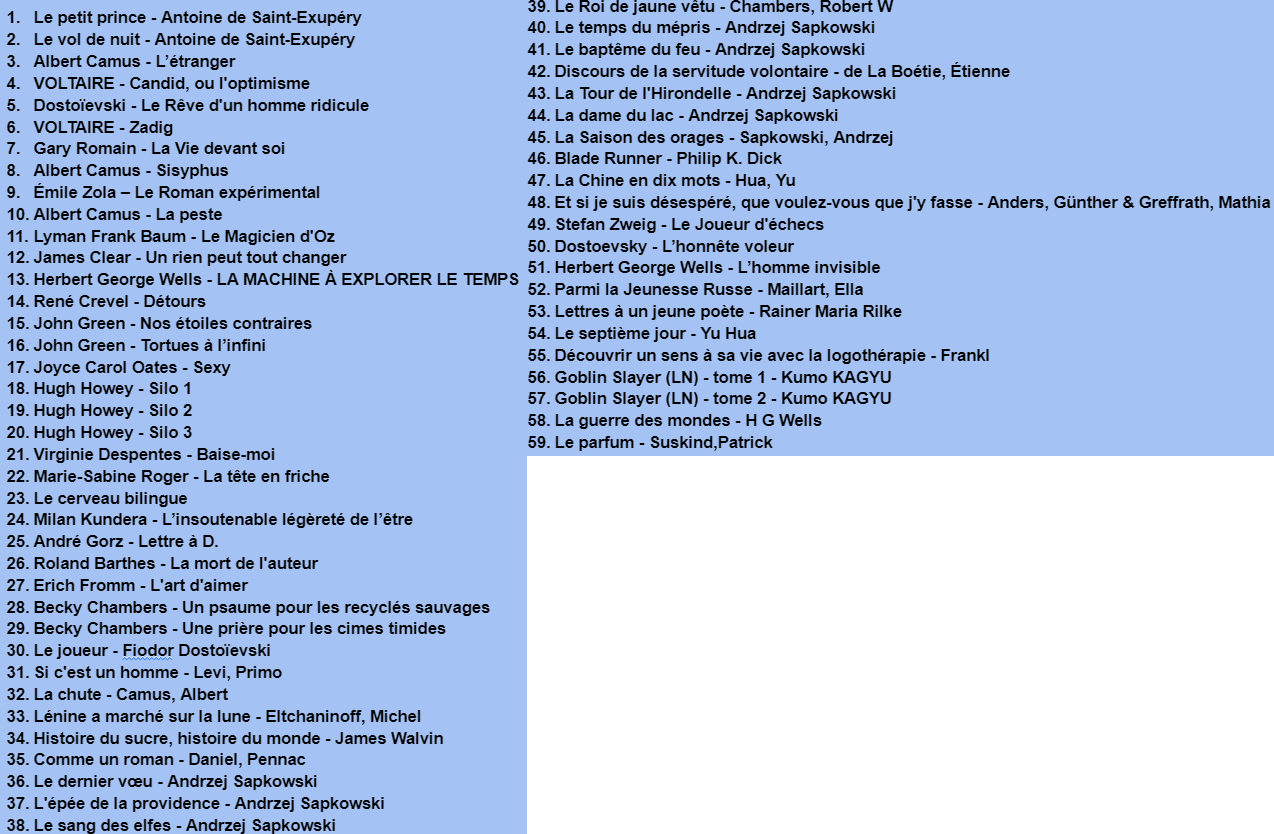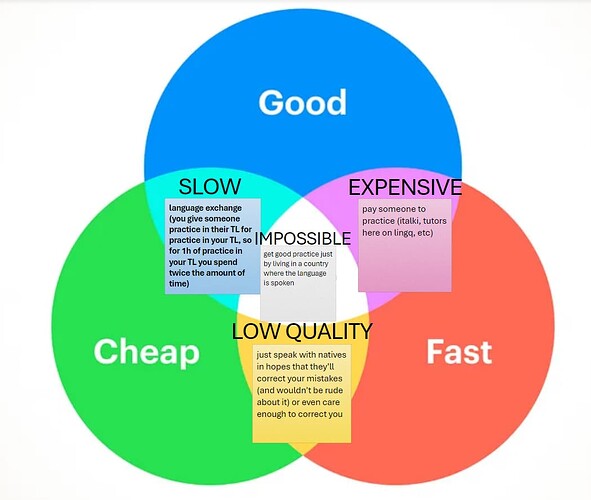Hello there, I’ve been lingQing for a bit more than a year, and in this amount of time I’ve read about 6 mil words and listened to 800-ish hours of content, mainly content for natives. My experience with all this literature and YouTube videos can be characterised by one word - delightsome. One way or another I enjoy the process of reading itself, despite sometimes stumbling here and there. It’s kind of strange looking back on the list of books that I’ve read so far, thinking that while reading the previous book my level of understanding was lower. It’s as though a thought arises: ‘If I hadn’t had the knowledge I have now, how could I have read and understood that?’ Right now I have a feeling that books and videos I come across are comprehensive. It feels like there is no N+1 anymore.
I understand that I have to continue my immersion, and the answer to the comprehensible input is more comprehensible input, I get it. What ails me is that I understand almost everything that I read, same goes for the audio content, and at this point it just feels like I just consume content just as comfortably as I would do in English, yet I can’t output French.
I am at the point where I am interested in learning grammar and feel that it is necessary for writing and speaking.
So yeah, I need your opinion on how to proceed from this point on. Does anyone know how to transform these 200k lingqs into anki cards? How to approach grammar at this point? How would you learn more day-to-day phrases, conversational skills as opposed to pretty academic or fictional writing that I’ve been reading up to this point?


